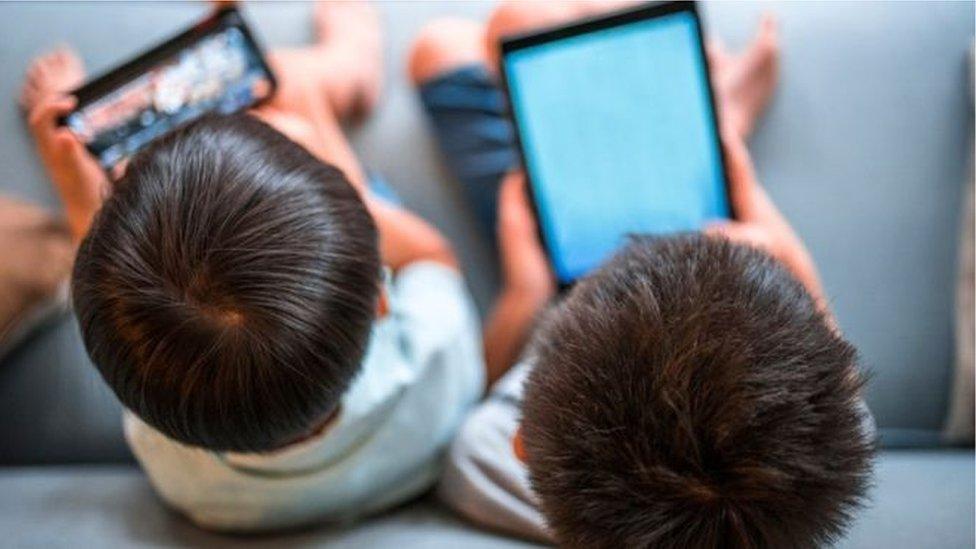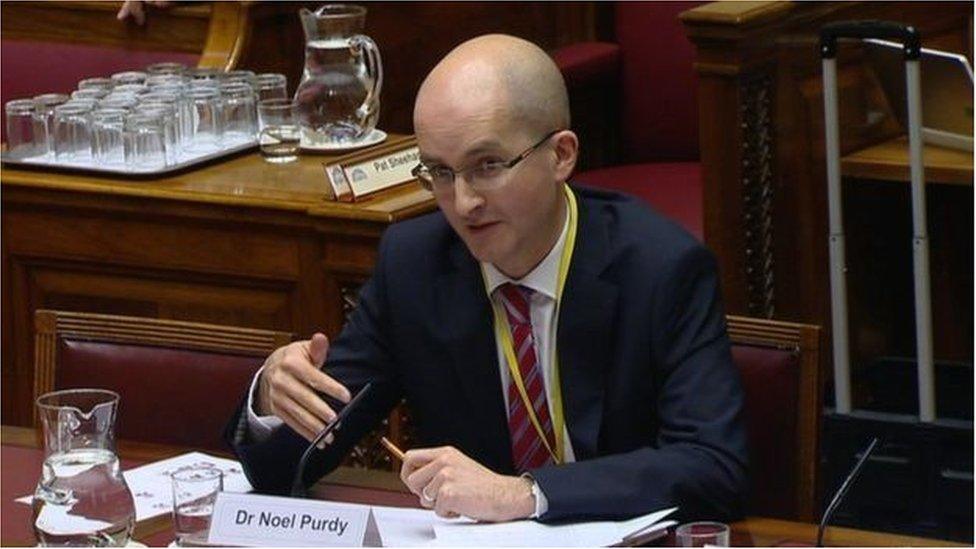Coronavirus: Executive 'should give disadvantaged children iPads'
- Published
- comments

Providing disadvantaged children with iPads would benefit many families, Dr Purdy says
The Department of Education (DE) should provide iPads to children from low income families for online learning.
Dr Noel Purdy, from Stranmillis University College, said school closures were much more likely to harm the education of children from disadvantaged backgrounds.
The last day at school for the vast majority of pupils was one month ago, on Friday 20 March.
They have been open only for vulnerable children of those of key workers.
Many schools and teachers have provided daily online lessons for pupils since then.
But, writing on the Centre for Research in Educational Underachievement (CREU) website, Dr Purdy said that the lockdown could increase the "digital divide" between rich and poor children.
"A recent Ofcom survey revealed that tablets followed by smartphones are the most popular devices used by children aged 5-15 to go online, but online access is mediated by family background," he said.
"Children in working class homes are less likely than those in middle class homes to access the internet via either a tablet or a mobile phone.
"There is also a world of difference between working on a large screen PC or laptop in a quiet bedroom or home study, and sharing access to Google Classroom with other siblings on a single mobile phone or tablet in a small living room or kitchen with the television on in the background."
Home schooling bingo
Dr Purdy also suggested that social media presented a misleading picture of the reality of home-schooling for many children.
"Last week’s Twitter sensation was middle class lockdown bingo, where thousands rated their performance against a list which included growing tomatoes, baking banana bread, meditating, sourdough starter, ordering from independent shops and 5pm gin," he said.
"But how highly would you score in a game of middle class home-schooling bingo, which might include doing the Joe Wicks daily workout, making your own playdough, a virtual tour of the musée d’Orsay, leading a mini-beast hunt in the garden, taking piano lessons on Zoom, and learning a new language?
"This middle-class home-schooling idyll belies the grubbier reality of class division and educational disadvantage.
"There is already some evidence from the Republic of Ireland that there are two other groups of parents whose voices are less frequently heard on social media: those who are trying their best but feeling overwhelmed and stressed by their new role as home educators, and those who can provide little or no support through a lack of ability, confidence, patience, time or health."

Dr Noel Purdy believes social media can often present a misleading picture of homeschooling
Dr Purdy said many parents needed more basic guidance on how to help their children learn at home, and many teachers also needed more support.
He also suggested that DE should make some funding available to provide iPads with free data plans to low income families so that children could learn online more easily.
Some pupils in England are to be provided with laptops on a temporary basis.
Some charities in Northern Ireland have also provided computers to some children who could not otherwise access online learning.
Dr Purdy said that when schools eventually did reopen there could be an "educational gulf, wider than ever before, between the educationally advantaged and disadvantaged".
"All of this will have both curricular but also pastoral implications for teachers, who themselves are under enormous pressure during the lockdown," he said.
First Minister Arlene Foster had previously said that school closures in Northern Ireland were likely to last for a prolonged period.
On Sunday, the UK government denied a report that it was planning to reopen some schools on 11 May.